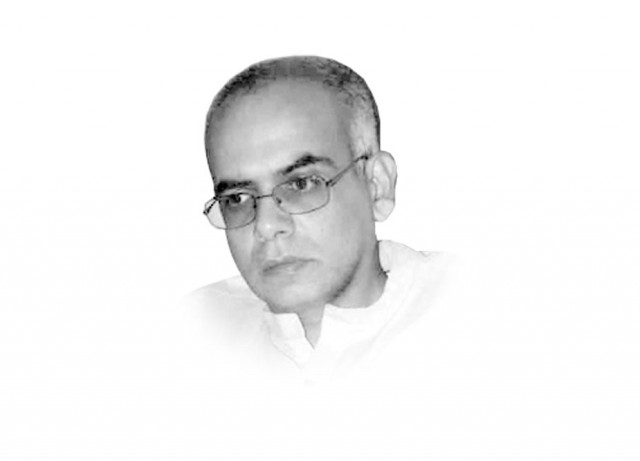Human development: the bigger picture
However, our world still faces many development challenges, most of which are mutually reinforcing

The writer is a development anthropologist. He teaches at George Washington University
Despite the hesitancy of wealthy countries to commit two per cent of the GDP for international aid, the UN estimates that more than one billion people have escaped extreme poverty. Over two billion people have also gained access to improved sanitation, and even more people now have access to improved drinking water. The mortality rate of children under the age of five has more than halved, the incidence of HIV, malaria and tuberculosis has also declined significantly. The proportion of seats held by women in parliaments worldwide has risen. The global net loss of forested areas has declined. Progress on so many different fronts is commendable.
However, our world still faces many development challenges, most of which are mutually reinforcing. Climate change, for example, has reduced the food security of poor families, and it has caused forced displacements, and it fuels international insecurity.
Vulnerable groups, including women and girls, ethnic minorities, indigenous peoples, people with disabilities, and migrants, are all still struggling to secure their most basic needs. More than a billion people are estimated to live with some form of disability, and these people are among the most marginalised within their respective societies. Millions of people displaced by manmade or natural disasters and conflicts, are also facing extreme conditions, including harassment, animosity and violence.
While women now have a longer life expectancy than men, and girls can now expect to have similar schooling opportunities as boys, women still have lower Human Development Index (HDI) value than men. The largest difference is in South Asia, where women are still being discriminated against with respect to control over productive assets, such as the right to own land and property. Only 10–20% of landholders in developing countries are women. In Pakistan, where women usually forfeit their right to own cultivable land, the situation is worse.
Ethnic and other minorities are also often excluded and persecuted, across many parts of the world. In South Asia, for example, such evidence is not hard to find given the situation of the Tamils in Sri Lanka, the Muslims in India, or the Christian and Hindu minorities in our own country.
To ensure human development for everyone, mere knowledge of the nature and location of deprivations is not enough. Achieving human development goals requires addressing the structural challenges of the current global system. We need multi-pronged approach to ensure that human development reaches everyone, not just the enterprising lower middle classes or the upper poor, but also the most marginalised.
The time has also come to examine the representation, transparency and accountability of multilateral institutions. Besides increasing the voice of developing countries in multilateral organisations like the IMF and the World Bank, these institutions must begin applying fair trade and investment rules. There is also need to establish a global mechanism to coordinate economic (voluntary) migration and to facilitate guaranteed asylum for forcibly displaced people. It is good to see the UN system also recognise the need for such structural reforms.
We still live in a world which takes two steps forward and one step back. Consider, for instance, the US government’s decision to pull out of the climate change agreement and to curb its aid commitments. Despite these setbacks, other bilateral and multilateral development actors can continue evolving their human development approaches, and the UNDP has provided very relevant steps which must be taken for humanity to keep moving forward.
Published in The Express Tribune, July 7th, 2017.
Like Opinion & Editorial on Facebook, follow @ETOpEd on Twitter to receive all updates on all our daily pieces.

















COMMENTS
Comments are moderated and generally will be posted if they are on-topic and not abusive.
For more information, please see our Comments FAQ